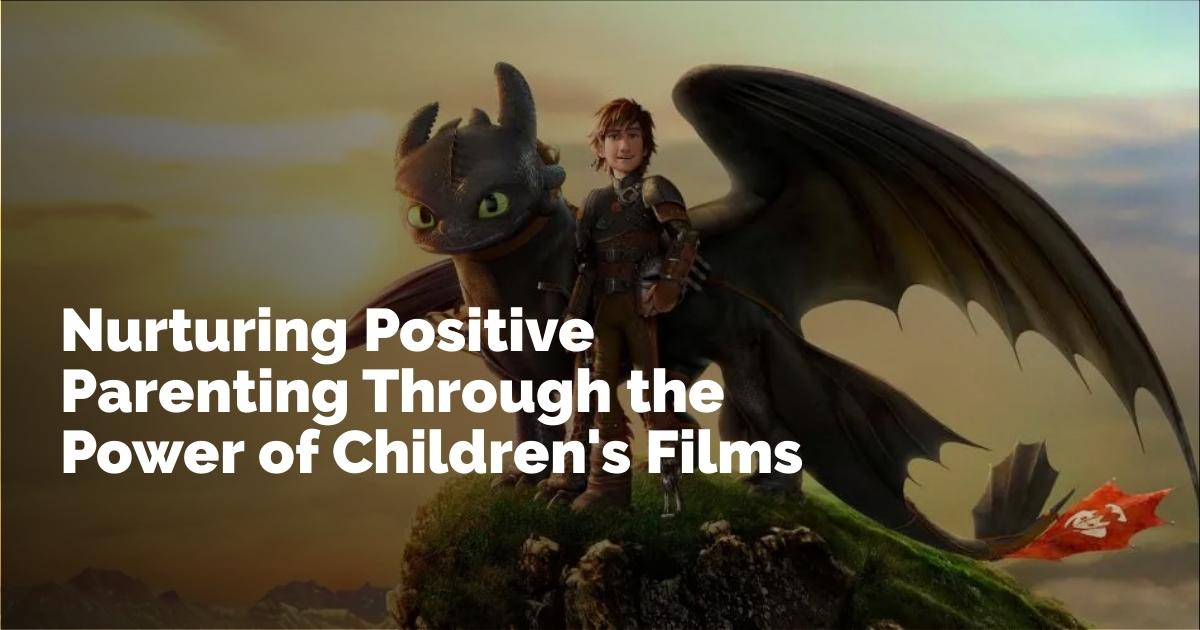Positive Psychology and Film: Parenting Through Children's Movies
"Interest can produce learning on a scale compared to fear as a nuclear explosion to a firecracker." This insightful remark by Stanley Kubrick highlights the transformative power of curiosity, a key concept in both education and parenting. As those entrusted with the guidance and upbringing of children, parents and educators share a universal goal: to nurture the development of character strengths in young individuals. Due to its accessibility and potent storytelling ability, film has emerged as a medium with the power to stimulate these strengths and interests in children.
Being Mindful of Children's Film Choices
As both a parent and filmmaker, careful consideration of the films my child watches is a priority. This approach goes beyond simply choosing films; it involves pre-viewing research, co-watching with my child, and engaging in post-viewing discussions that delve into the character strengths portrayed. One powerful example of a film that showcases curiosity is "Alice in Wonderland" (2010), which offers a perfect opportunity for parents to discuss and celebrate this particular strength with their children.
However, the discourse surrounding film, character strengths, and parenting is varied and abundant with differing opinions. Recognizing this diversity is crucial for those navigating the delicate balance of influencing a child’s character positively through media.
Growing Children as Gardeners Do
The concept of parenting varies greatly across cultures and historical periods. Interestingly, the term "parenting" only entered the American lexicon in 1958. In her thought-provoking essay, "A Manifesto Against ‘Parenting’," Dr. Alison Gopnik challenges the modern-day understanding of parenting as a production-oriented task. She poetically suggests that "caring for children shouldn’t be like carpentry, with a finished product in mind, but rather like gardening."
In this metaphor, gardening involves nurturing and protecting plants, without rigid expectations of the outcome. It acknowledges the unpredictability inherent in the process and embraces both the triumphs and setbacks. Gopnik argues that while parenting today often becomes a goal-directed verb, gardening analogizes a love that is purposeful yet without strict benchmarks, aiming to help children shape their own destinies.
In today's rapidly evolving society, many parents find themselves overwhelmed by various methodological questions about childrearing, from infant care practices to extracurricular involvement guidelines. Consequently, cultural scripts available at any given time heavily influence parental approaches.
The Parenting Script of Self-Monitoring
One widespread current parenting script is the encouragement of individuals to "be themselves." According to Adam Grant, a psychology professor at the University of Pennsylvania, this advice is emblematic of the present "Age of Authenticity." However, he warns that this seemingly straightforward advice overlooks the complexity of self-monitoring, a key personality trait.
Self-monitoring involves identifying and adapting to social cues. Those who excel at self-monitoring skillfully align their authentic selves with environmental expectations. Conversely, others prioritize their internal states over external considerations. Grant notes criticism aimed at high self-monitors for their perceived inauthenticity, although he acknowledges the downfalls of excessive authenticity as well.
Character Strengths in Children and Adolescents
Psychologists Martin Seligman and Christopher Peterson have observed that many adolescents and even younger children might not yet possess the cognitive maturity to fully display strengths like authenticity. Despite this, foundational strengths such as love, zest, and hope tend to start developing early. Children often imitate the behaviors exhibited by role models, adopting these strengths naturally over time.
While some character traits may require more explicit instruction, a combination of home environment, educational institutions, and external influences like film can effectively nurture these strengths. Studies suggest that in adolescence, possessing developed character strengths like hope, zest, and leadership results in enhanced well-being and reduced depression and anxiety.
Exploring Character Strengths Through Film
The role of films in parenting and education offers fertile ground for exploring and cultivating character strengths alongside children. Films like "Akeelah and the Bee", "How to Train Your Dragon", and "Whale Rider" provide rich narratives depicting various strengths and virtues, making them valuable resources for conversations about character.
For instance, "Akeelah and the Bee" touches on themes of perseverance, love of learning, and community. "How to Train Your Dragon" explores courage and authenticity, while "Whale Rider" focuses on resilience and cultural integrity. These films can be potent tools for parents and educators to stimulate dialogue around character strengths and encourage children to reflect on their personal growth.
Nurturing a Culture of Strengths
In cultivating a supportive environment for children, we, like adept gardeners, need to adapt continually to the cultural and informational context surrounding us. The goal is not to mold children into a predetermined shape but to foster a space where they can explore, challenge, and grow—embracing curiosity and adventures along the way.
Richard Weissbourd’s research highlights an alarming societal trend where children prioritize personal achievement and happiness over caring. This discrepancy between parental aspirations and perceived values underscores the cultural emphasis on success. An exploration of how narratives in film might offer alternate value frameworks suggests film can indeed be integral to "parenting".
By analyzing the portrayal of character strengths in films, we can illuminate and celebrate virtues such as creativity, teamwork, and wisdom, broadening the framework through which personal achievements are assessed. While evaluating content for parenting purposes, it’s critical to balance achievements with virtues that emphasize communal and personal growth.
Final Thoughts on Positive Psychology and Film
Delving into the world of film through the lens of positive psychology reveals its potential to enrich lives by exemplifying human values, virtues, and character strengths. The rich tapestry of cinema offers a powerful medium for parents to engage with their children in meaningful experiences, subtly fostering character development as each scene unfolds.
출처 : Original Source

